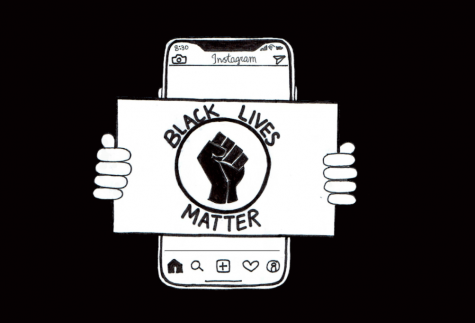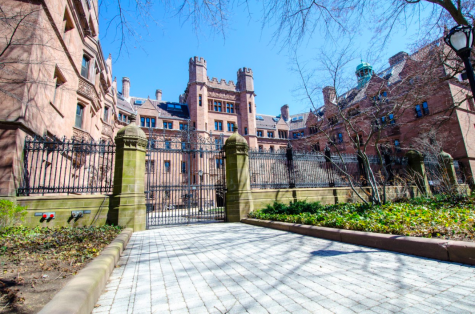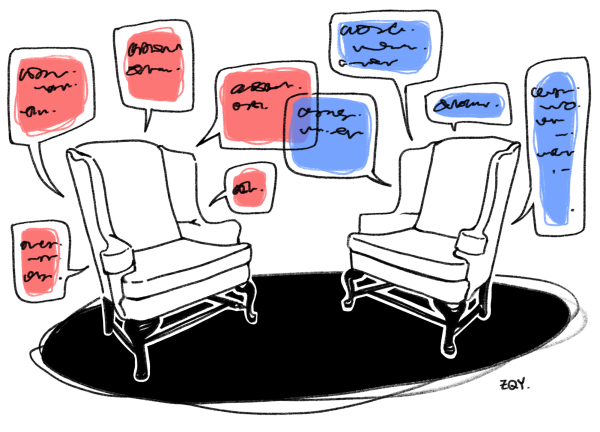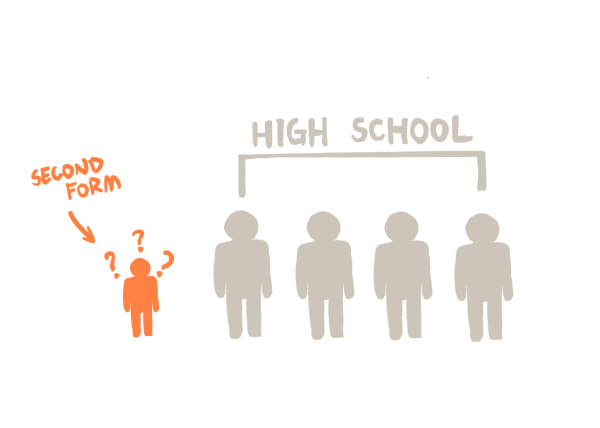Democratic Victory: Blessing or Curse for Left?
Although seizing control of the House of Representatives is the primary goal for the Democratic party this November, such a victory would actually have some unforeseen repercussions going into the presidential election year of 2020. Currently, the Democrats have a roughly 80% chance of retaking the House according to FiveThirtyEight, the foremost source for election forecasting. This prediction has led to high spirits on the left side of the aisle and general excitement among progressives still stung by the 2016 election and by unchecked Republican power.
One of the supposed chief benefits to winning the House is that Democrats would be able to stop almost any Republican legislation from being passed. With control of one chamber, the Dems could cause smothering gridlock, choke the legislative windpipe of the Republican Party, and halt any bill in its tracks. On its face, this gridlock seems like a good thing. Wouldn’t it be lovely if we could stop things like the repeal of Obamacare and the tax bill all by ourselves, without a single Republican vote?
In some ways, yes, but over time, incessantly blocking legislation creates the negative image of an oppositionist party, an image of being determined to halt forward progress. Republicans would be able whip up their base and pro-government swing voters into a counter-frenzy by railing against inaction and stagnation within the government. When one side is in power accomplishing things, the other side is usually unhappy. When neither side is in complete power, however, nobody is happy because no one can pass their bills. Most legislation is designed to fix a legitimate problem, and people just tend to disagree about the solution to the problem rather than the problem itself.
Imagine that the administration at Groton were to recognize that students got far too little sleep and proposed that the start of the school day be moved thirty minutes later. Now, both the governing party (Mr. Maqubela) and the opposition party (the student body) agree on the problem, and legislation has been proposed. However, if the legislation is passed, Mr. Maqubela receives all the credit or blame for its consequences, whereas if the measure fails, the opposition wins support by complaining about the governing party’s solution while simultaneously being absolved of all responsibility. It is much easier to be the opposition than to be the government. That advantage is part of the reason that the presidential party generally fares poorly in midterms. The ruling party shoulders all of the blame and the opposition is able to make electoral gains.
This election year, Democrats must be careful. There will certainly be downsides to taking the lower chamber. Assuming governing responsibility could dissipate some of the blue wave and jeopardize Democratic designs on the Senate and White House in 2020. At a time of polarization and lack of decorum, partisan gridlock can easily morph into an all-out political war in which the Democrats are outnumbered and outgunned, seeing as there would still be a Republican president and likely a Republican Senate.
Another possible downside would be caused by the very real prospect of impeachment. Multiple Democratic members of the House, most prominently Brad Sherman (D-Calif.) and Maxine Waters (D-Calif.), have called for the impeachment of the President, and it is very likely that articles of impeachment would gain substantial traction in a Democratic House. However, unless legitimately concrete evidence were to emerge proving the President guilty of a serious crime, it is virtually impossible for a Republican-held Senate to convict him. Thus, any articles of impeachment would ultimately be a political ploy, one which would undoubtedly anger the Republican base, lend credence to the oft-cited “left wing conspiracy” involving George Soros and the Clintons to remove Trump from office, and increase Republican fervor and voter turnout. A call for impeachment, if taken seriously, would spell disaster for the Democrats in 2020.
While a win in 2018 might energize the party and would give Democrats legislative leverage over the Republican agenda, control of the House comes at a cost. Democrats would (and likely will) pay, in terms of uncontrollable gridlock, electoral fallout, and potential Republican retaliation. When Washington can’t get things done, the whole country suffers, and much of the blame for that suffering will fall on the Democrats. It remains to be seen how impactful that blame could be in 2020.









